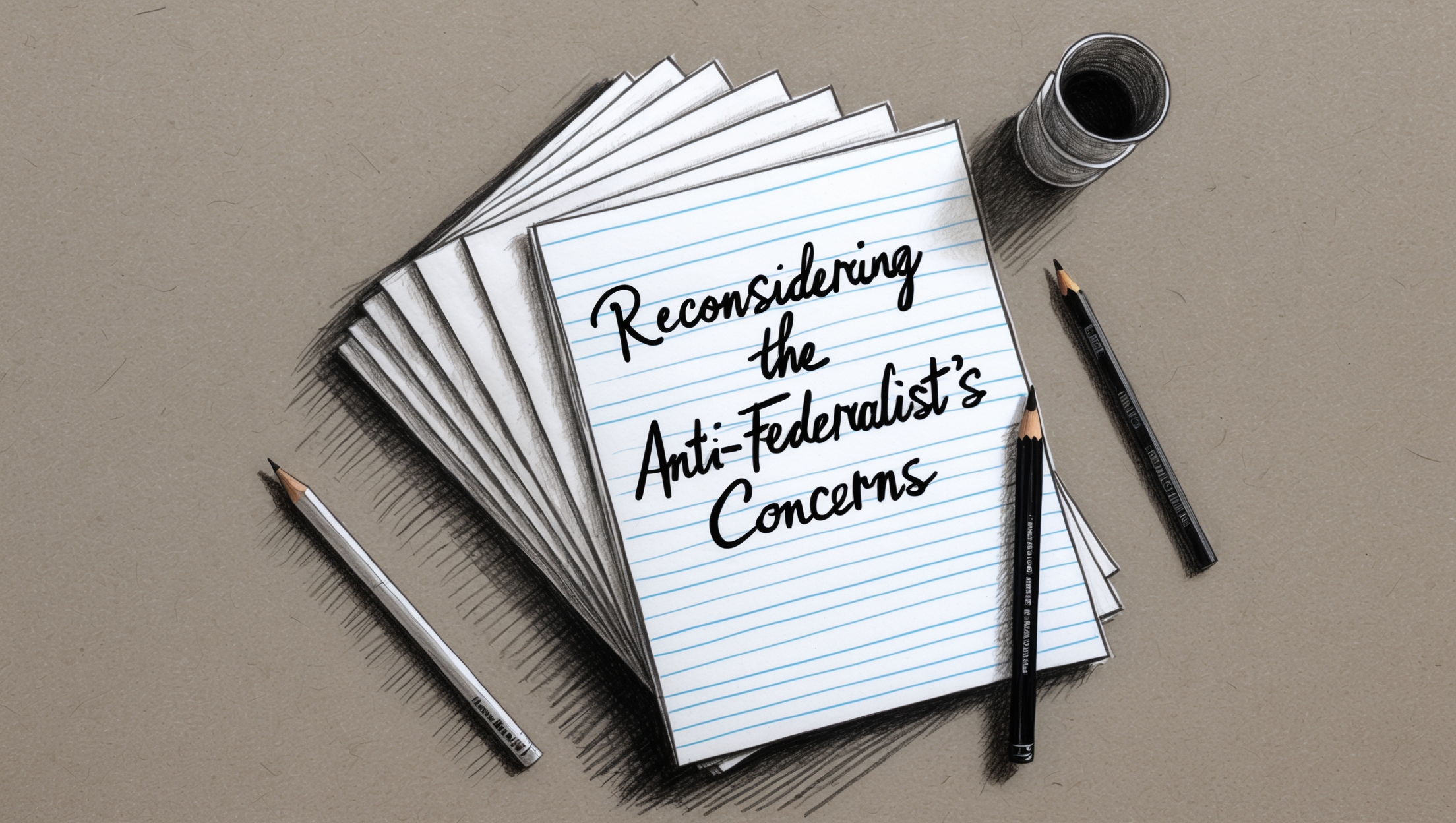Time to Revisit the Anti-Federalists
We live in a time where the federal government’s reach seems to extend into every aspect of our lives. From the broad interpretation of the Commerce Clause to the extensive surveillance programs justified by national security, the concerns raised by the Anti-Federalists over 200 years ago appear more relevant than ever. Maybe it’s time we revisit what they had to say.
What Were They Worried About?
The Anti-Federalists were a group of early American thinkers and politicians who opposed the ratification of the Constitution as it was originally proposed. They worried that a strong central government would become tyrannical and infringe upon the rights and freedoms of the people and the states. They feared a powerful executive, an overreaching judiciary, and a legislature that would ignore the will of the common citizen. Their solution? Stronger state governments and a Bill of Rights to protect individual liberties.
Expansive Federal Powers
Take a look at how the federal government operates today. We see an expansive interpretation of the Commerce Clause that allows Congress to regulate almost any economic activity. Anti-Federalists would argue that this goes far beyond what the founders intended and encroaches on the rights of states to manage their own affairs. Do we really need the federal government dictating educational standards, healthcare policies, and business regulations at such a granular level? The Anti-Federalists would likely say no, and we might find wisdom in their caution.
Executive Overreach
Consider the growth in executive power. Presidents now regularly use executive orders to bypass Congress and enact significant policy changes. The Anti-Federalists feared an overpowering executive branch, and what we see today might validate their concerns. We have seen presidents commit troops to conflicts without a formal declaration of war by Congress, something the Anti-Federalists would have found deeply troubling.
Judicial Activism
Our judicial system, particularly the Supreme Court, often makes landmark decisions that shape the social and political landscape of the nation. The Anti-Federalists were wary of an unelected judiciary that could wield too much power without being accountable to the people. Whether it’s decisions on healthcare, marriage, or campaign finance, we can see their point. Should nine justices have the final say on issues that affect millions of Americans, or should these decisions be more democratically determined?
Surveillance and Privacy
Post-9/11, the federal government has significantly ramped up its surveillance capabilities. The Anti-Federalists prized personal privacy and would be alarmed at the extent to which our government can now monitor its citizens. The Patriot Act and NSA surveillance programs, justified by the need to protect us from terrorism, represent the kind of overreach that Anti-Federalists warned us about.
Dependency and Debt
Finally, let’s talk about the welfare state and national debt. The Anti-Federalists believed in limited government intervention and personal responsibility. Today, we have extensive welfare programs that, while providing necessary support, also create a dependency on government aid. Additionally, our national debt has ballooned to levels that threaten future economic stability. The Anti-Federalists would likely argue that such fiscal irresponsibility endangers the nation’s freedom and prosperity.
Why It Matters Today
Revisiting the Anti-Federalists isn’t about turning back the clock but about finding balance. Their insistence on a Bill of Rights gave us essential protections that we cherish today. By reflecting on their warnings, we can strive for a government that respects individual liberties, operates within its constitutional limits, and maintains a balance of power that prevents any one branch from becoming too dominant.
Conclusion
It’s time we give the Anti-Federalists the attention they deserve. Their concerns about centralized power, individual rights, and state sovereignty are as relevant today as they were in the 18th century. By revisiting their arguments, we can work towards a more balanced and fair governance structure that honors both the letter and spirit of the Constitution. Let’s take their lessons to heart and apply them to our modern context.



